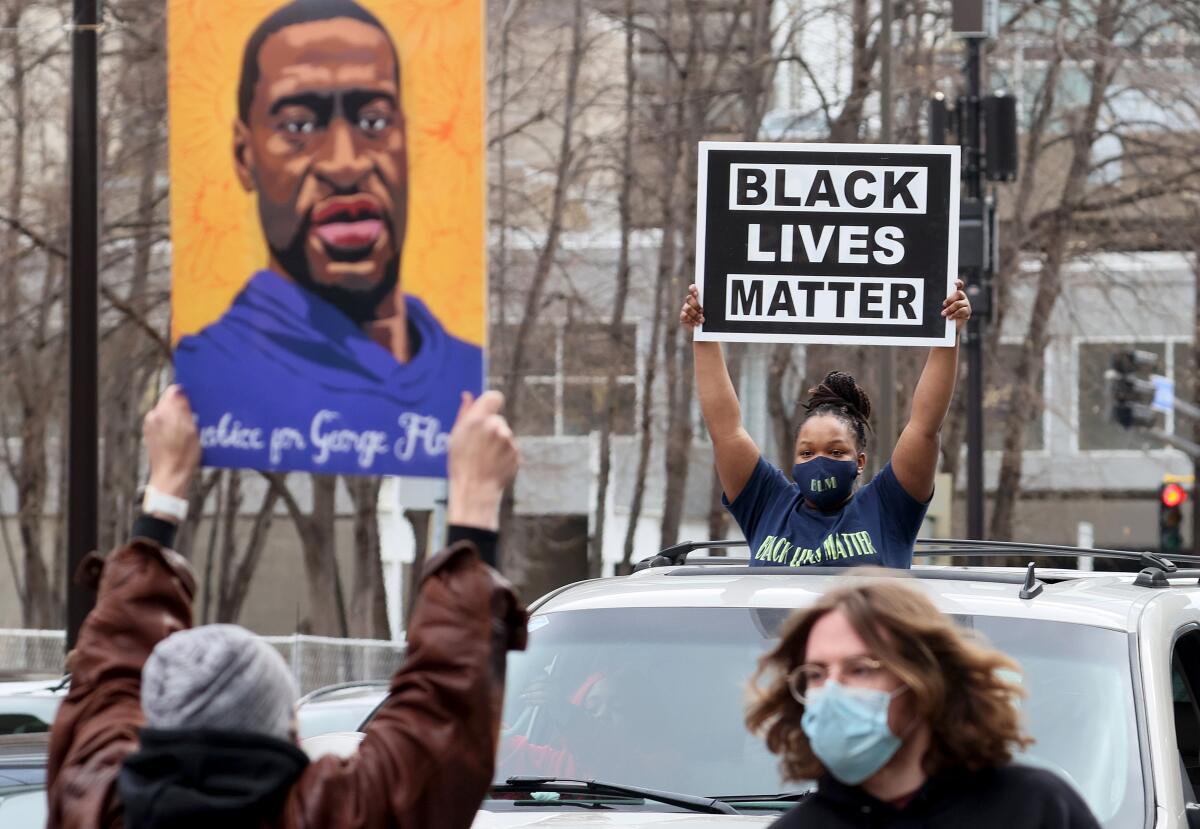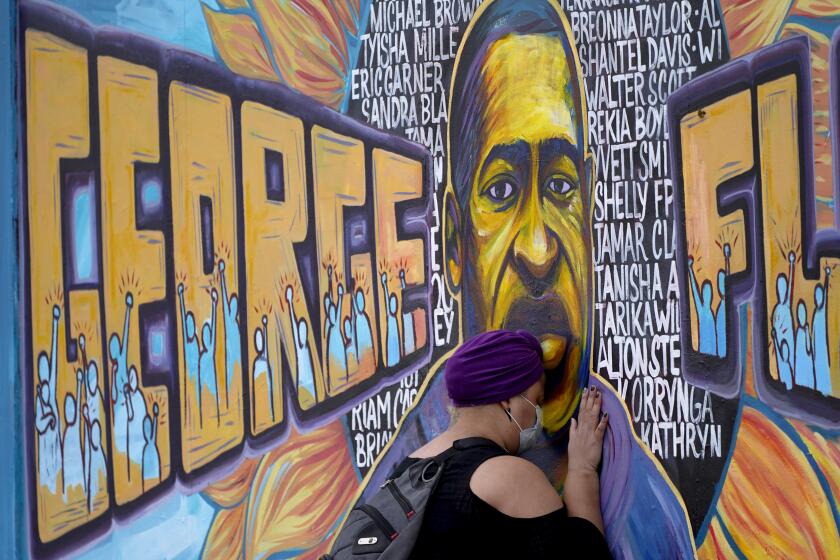Column: The Chauvin prosecution isn’t a bellwether for the state of justice in America

- Share via
President Biden, along with countless of his fellow citizens and world leaders, hailed the guilty verdicts in the Derek Chauvin case: “This can be a giant step forward in the march toward justice in America,” he said.
To be sure, an acquittal in the case would have been a travesty of justice. But in general, it is a mistake to see individual prosecutions as bellwethers of the state of justice in the country. It freights them with pressure they are not equipped to bear. The Chauvin conviction may be a catalyst for change in policing, but it shouldn’t be read as a fundamental turning point.
What Chauvin did to George Floyd was a singular abomination — the prolonged strangulation of a man who was posing no threat to police when Chauvin killed him, then continued to apply unreasonable force three minutes after his death.
The prosecutors, dealt a great hand, did an excellent job, and the defense did a poor one with a lousy hand. Just believe your eyes, the prosecutors hammered home: Chauvin’s knee on the neck was a “substantial factor” in Floyd’s death — under Minnesota law, that made the defense’s evidence of hypertension or drug use beside the point.
The prosecution also got a very favorable jury instruction on the most serious charge, second-degree murder. The judge directed the jurors to find guilt even if they believed that Chauvin had no intention of imposing serious bodily harm, which would have been one way of construing Chauvin’s odd vacant stare, his near casualness, as he asphyxiated Floyd.
A juror in the Derek Chauvin trial said most of the deliberation was spent convincing one panelist about some jury instructions, not of Chauvin’s guilt.
Sometimes a trial result indicates that something rotten is entrenched in our justice system. That was famously the case with a series of acquittals in righteous civil rights prosecutions in the South in the 1960s. But no one courtroom judgment should be taken as a signal of great social change. No single verdict represents a paradigm shift.
We should be cautious about what we read into the Chauvin verdict because every prosecution is, and should be, only about the facts and the law in that case, no more and no less.
Jury trials are highly structured exercises aimed at arriving at the truth of a particular set of circumstances. Jurors hear and see evidence for two versions of the facts, each constrained to meet fairness standards. They must decide which is right. That’s hard enough. We don’t want them also to act as social engineers, or thought leaders, going beyond the case to some larger issue or zeitgeist moment. We have to hope that the Chauvin jurors returned guilty verdicts because the defendant was plainly guilty, not to make a broader point or move the country in any direction.
We also should be cautious about the verdict’s impact because most prosecutions of police for excessive force are far more challenging, far more losable than State of Minnesota vs. Chauvin.
In most cases of alleged excessive force by police, the officer uses deadly force in the heat of the moment and in circumstances in which they can plausibly claim fear. Jurors understandably tend to give police the benefit of the doubt in those situations, which makes convictions hard to come by. Add in the requirement of unanimity beyond a reasonable doubt and you can better understand the data gathered by researchers at Bowling Green University: Despite more than 13,000 fatal shootings by police officers since 2005, there have been only seven murder convictions.
The next prominent and seemingly extreme excessive force case that goes to trial very easily might end up like the overwhelming majority of the others, without a murder conviction. And if it’s held up as a proxy for a new level of equity and proper policing, it will disappoint Americans to the same degree that the Chauvin convictions buoyed us.
There is, however, one way in which I think the Chauvin prosecution signaled, and possibly even brought about, real and lasting change. It showcased the remarkable willingness of Minneapolis officers to step up and condemn Chauvin’s lawlessness. The ground shifted, and I think cop culture won’t shift back.
For the rest of our reform hopes, however, we should look outside the system of criminal trials, to legislation such as the George Floyd Justice in Policing Act of 2021 (among other things, Los Angeles Rep. Karen Bass’ bill would ban certain police practices outright), and the vigorous return of the Department of Justice’s assertion of investigative authority over rogue departments.
Atty. Gen. Merrick Garland rescinded the sharp limits imposed on that authority at the beginning of the Trump administration. Garland has since moved quickly to exercise the reinvigorated powers, announcing an investigation of the Minneapolis force just after the Chauvin verdict and, on Monday, of the Louisville, Ky., police department, whose officers killed Breonna Taylor in a no-knock raid in 2020.
The Chauvin jury fairly applied the law to the facts in a case that meant a great deal to most Americans. But rather than Biden’s “giant step forward” reaction, I would incline more toward that of Canadian Prime Minister Justin Trudeau. He welcomed the verdict but said it “still underlines that there’s an awful lot of work to do.”
More to Read
A cure for the common opinion
Get thought-provoking perspectives with our weekly newsletter.
You may occasionally receive promotional content from the Los Angeles Times.











